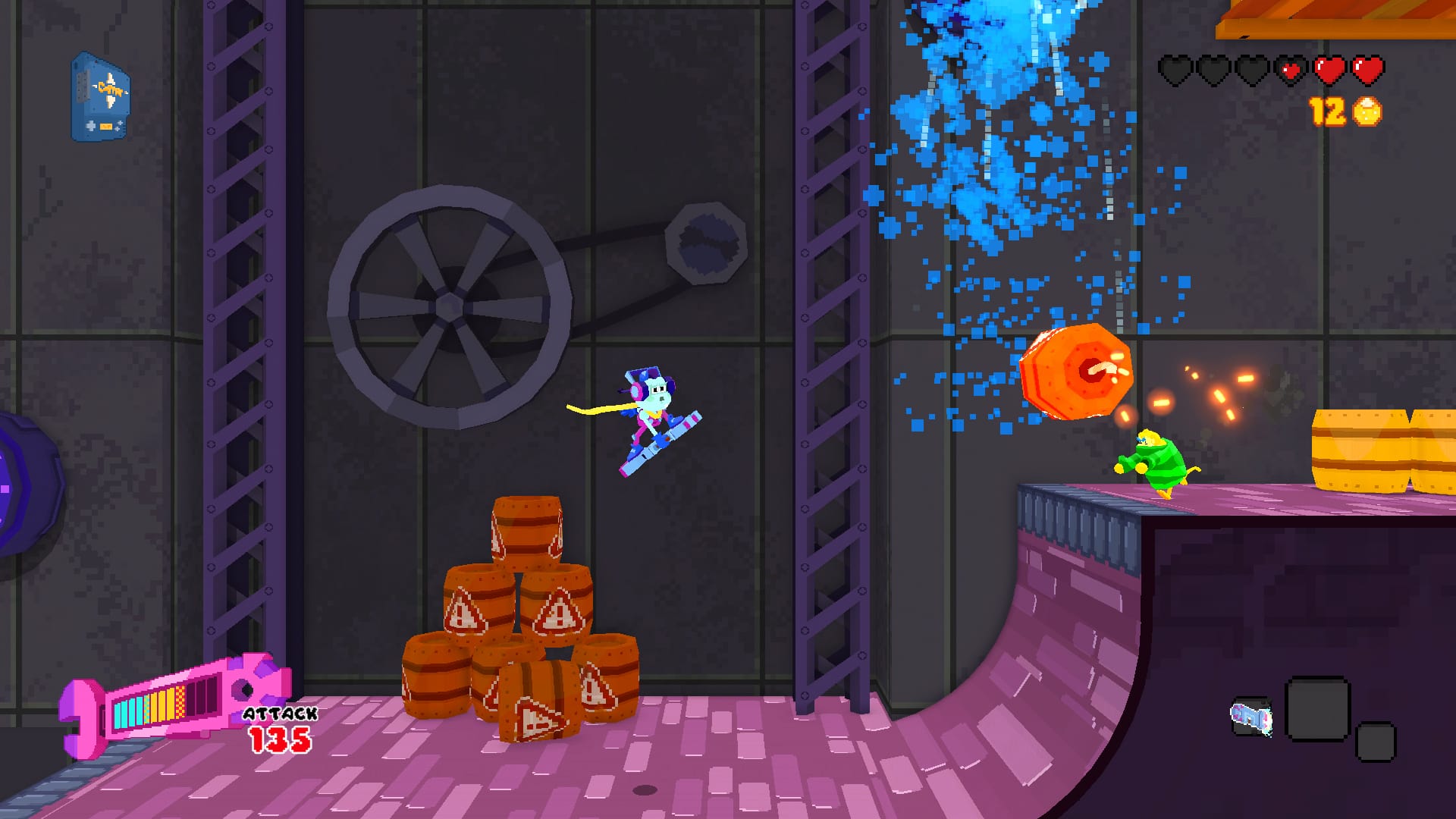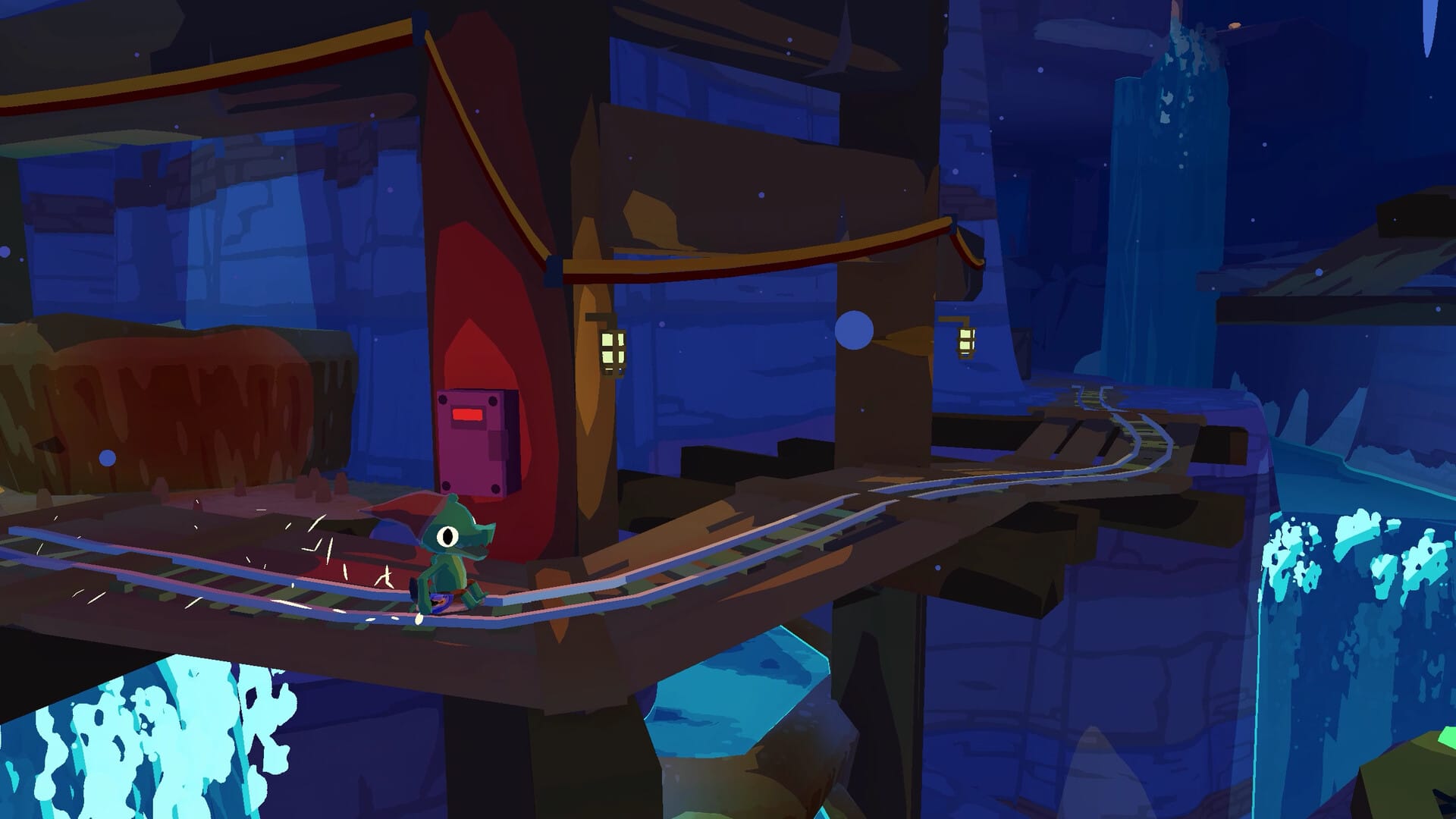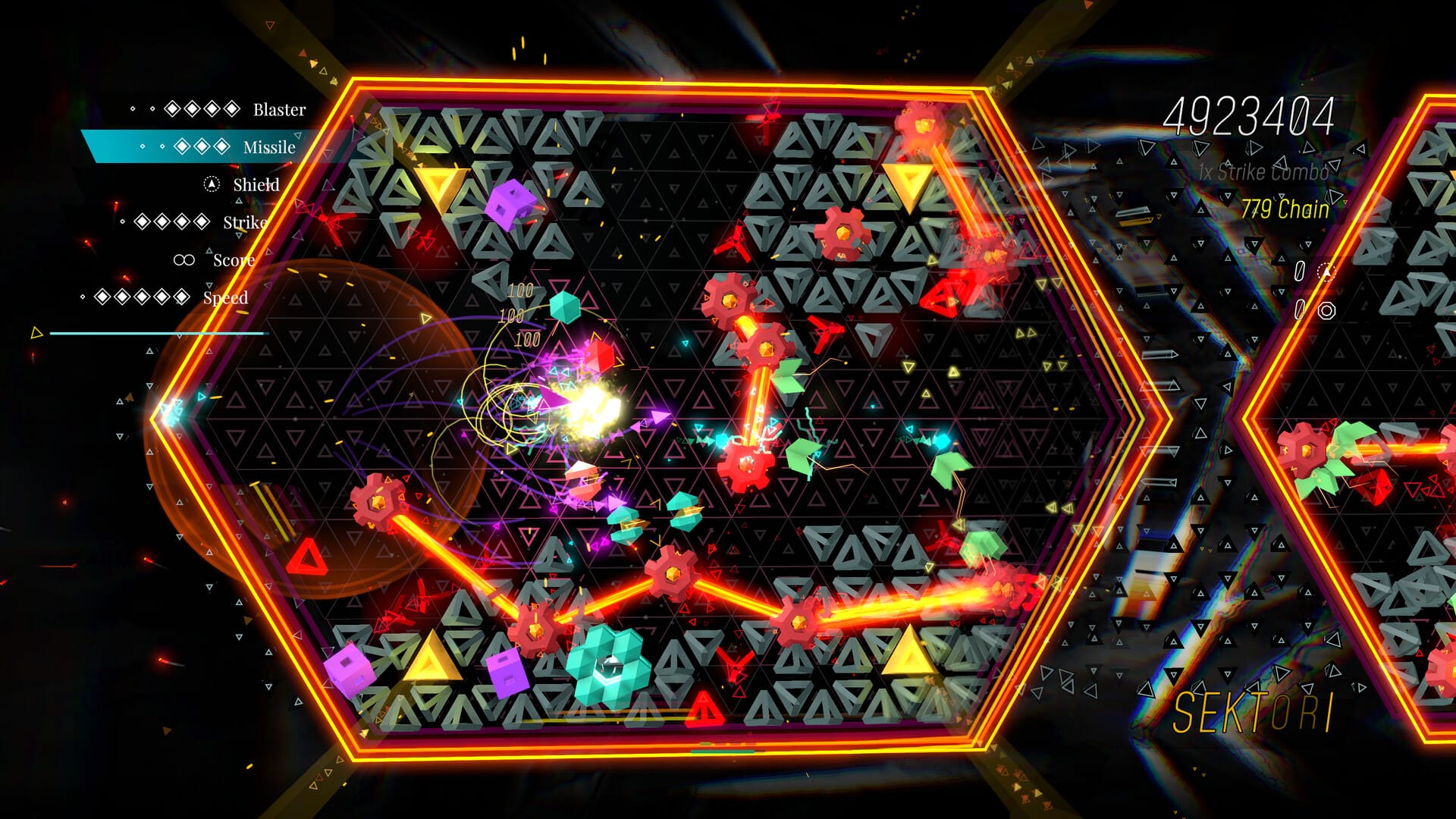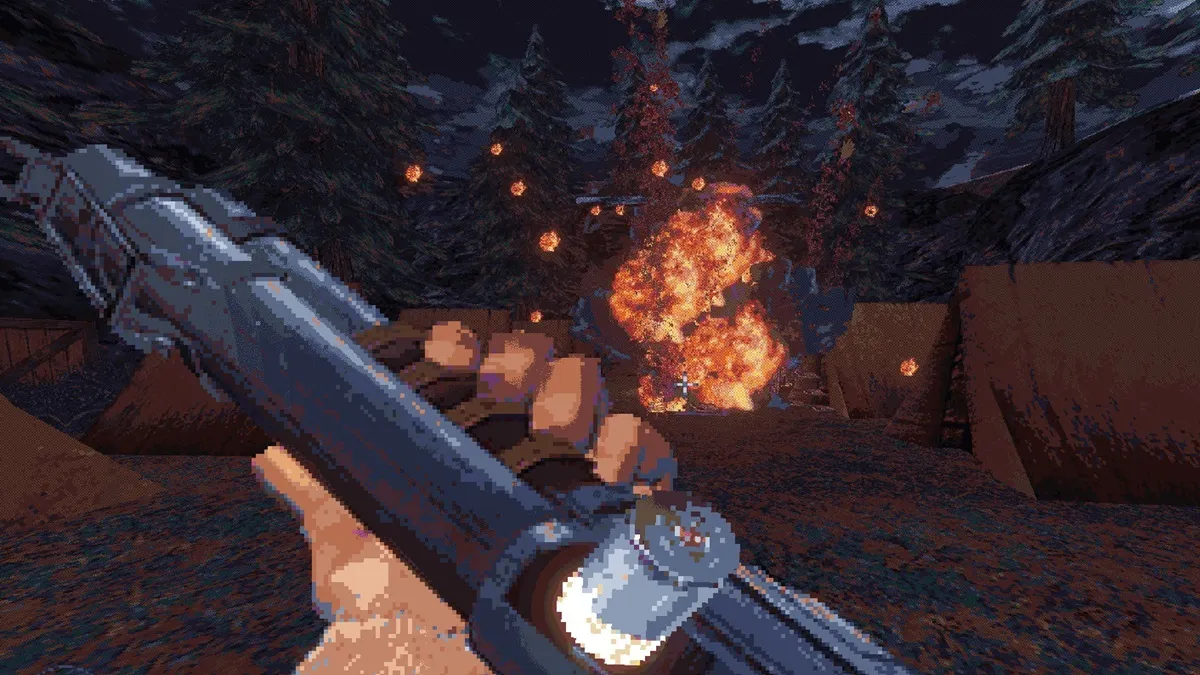Hauntii is beautiful – literally. Its art is sublime. The ways it blends 2D and 3D together creates a striking look that is a joy to behold. Every minute I spent wandering through its world – the forests, the carnivals, the city streets – was spent dazzled by the sights. It’s a lovely little game about letting go and facing the unknown.
You play as Hauntii, a newly formed ghost who arrives in the world of Eternia, lost and confused. They quickly wander into a bad spot, almost immediately consumed by whatever lurks in the darkness, before being saved by an angel. They instantly take a liking to Hauntii. When attempting to ascend with their new Eternian friend, however, the chains that bind them to this world prevent them from following. Only by collecting stars and uncovering their past, making those memories tangible by crystalizing them and then letting go of them can they ascend and join their friend in whatever lies beyond.
It’s a task that is easier said than done. Learning about who you were and remembering important moments in your life only to suddenly give them up is tough. Hauntii tries when first prompted to do so, but ultimately can’t. It’s hard! Their friend’s job is to guide them on the path to ascension, something that many other ghosts have attempted alongside an Eternian guide (and seemingly abandoned, instead hoarding whatever crystals they could form), but they also clearly care for Hauntii as well. This isn’t simply a job for them, but something much more personal.
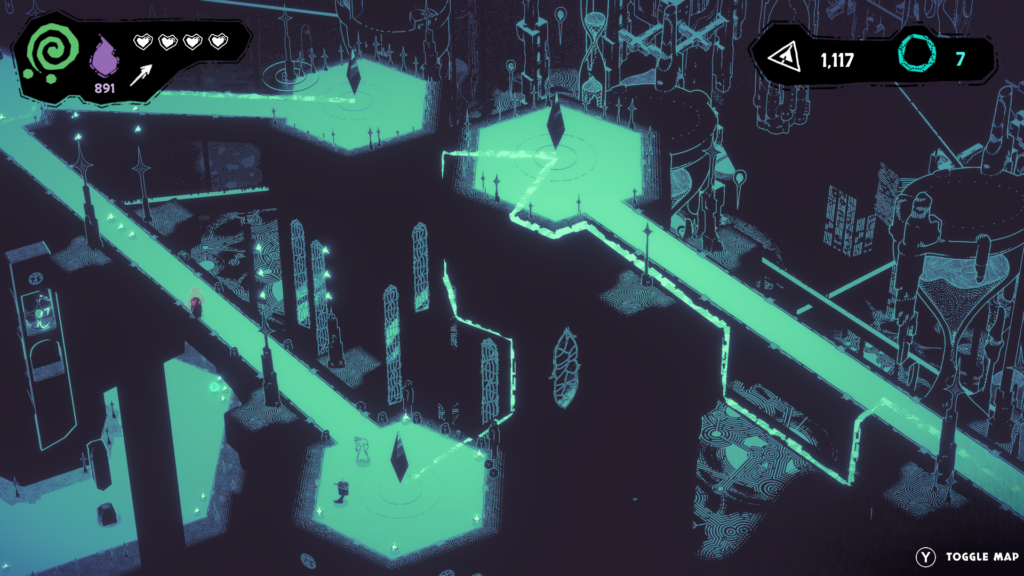
The relationship between the two isn’t explicitly spelled out (I assume they both knew each other in a previous life and reunited here through sheer serendipity), but the ambiguity works. It’s not really important to know why they’re close: just that there’s a connection – a bond – strong enough for both of them to go out of their way to help one another.
Hauntii plays like a twin-stick shooter. The right stick fires “essence,” which allows them to haunt objects or certain characters to take control of them, as well as to fight corrupted ghosts and clear the ooze that often marks the ground. Hauntii isn’t a particularly fast or frenetic game, however. Its pace is relaxed. Hauntii gently slides across the ground, a dash with a cooldown that teleports them forward being the fastest means of locomotion available. When fights break out, you’re rarely navigating a sea of bullets, instead dealing with foes who try to pursue you who aren’t too difficult to evade.
Exploration is more of the focus in Hauntii. You’re trying to find stars to fill out constellations to recall memories and create the crystals you need to break the chains binding Hauntii. Finding those stars requires you to just try things and see what happens. Hauntii encourages you to poke around. Haunt a tree and shake it to see what falls out, possess a spire and extend or retract it just for kicks (and perhaps find something at the very peak), maybe toss some bombs at some boxes to see what’s inside or clear a path. Every area is large and full of interaction that it’s easy to spend a lot of time on just seeing what’s there.
It’s very playful. Not everything you can haunt can do anything meaningful or helpful, but they don’t need to. Just existing is enough. There’s value in interactions that don’t lead to anything, especially in a game that emphasizes curiosity like this one. It gives space to be in the world for its own sake rather than constantly chasing objectives.
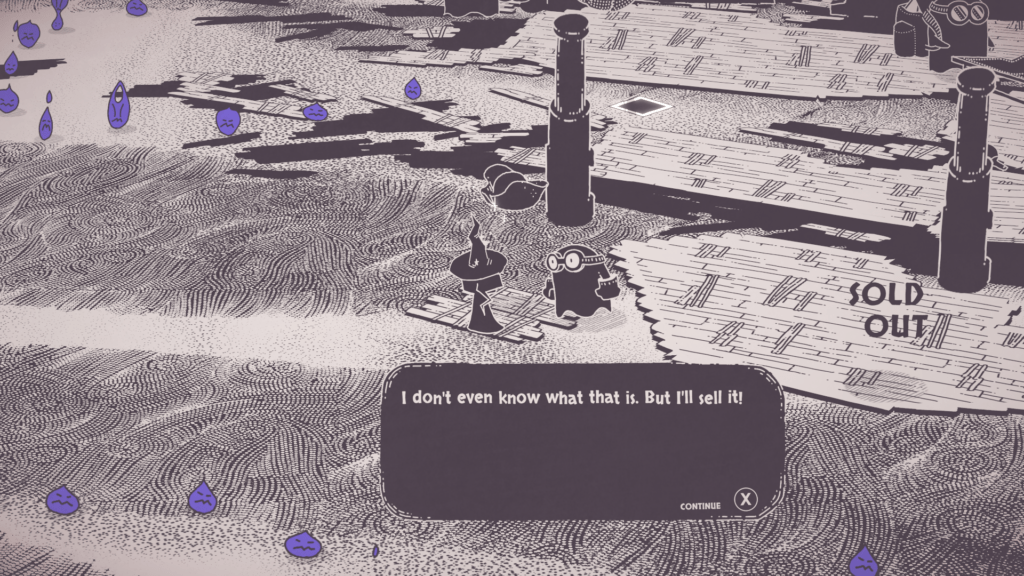
I tried to be thorough in searching for stars. I regularly couldn’t find them all in any given area, but the process itself was joyful. I must have spent an hour or more combing every inch of one part of the carnival trying to find the last one hidden there. I tried everything I could think of, concocting ever more creative ideas to try on the basis that maybe this one would work (it didn’t). Hauntii avoids relying heavily on a small number of tricks to hide stars, which encourages you to just try something, anything. It makes tracking them down a delight because it never becomes a simple checklist of trying x, y, or z.
This sort of play is often reserved for platformers, as they’re primed for exploring worlds and seeking out secrets, but Hauntii’s take is just as potent. The steady pace you wander through each zone, poking around at whatever catches your eye, and being rewarded with either a star or just a fun interaction is simply splendid.
I didn’t entirely know what to expect from Hauntii when I started playing. Other than being taken by its style, I didn’t really look into it much (I like to be surprised). A twin-stick adventure game certainly wasn’t something I would have guessed, but the result speaks for itself. Hauntii is wonderful: a lovely story and a playful and charming world make every minute a delight.
Callum Rakestraw (he/him) is the Reviews Editor at Entertanium. You can follow him on Cohost @crakestraw.


